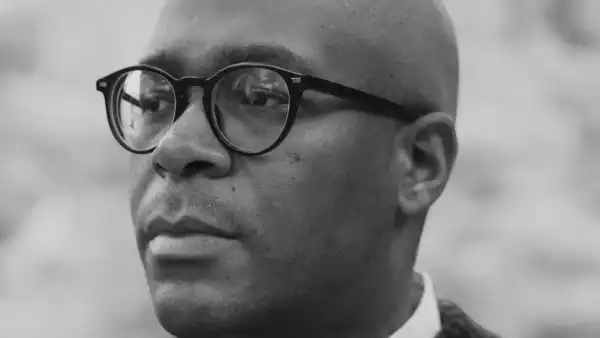
The stereotype of the Manic Pixie Dream Girl lives on—though, in “Tully,” a new comedy directed by Jason Reitman and written by Diablo Cody, it gets a bewildering new life, in the form of a Manic Pixie Dream Nanny. Charlize Theron stars in the film as Marlo, a thirtysomething woman living in suburban comfort somewhere near New York with her husband, Drew (Ron Livingston), and their two young children, Sarah (Lia Frankland) and Jonah (Asher Miles Fallica). A human-resources officer, Marlo—who’s very pregnant and nearly due—is on maternity leave, staying at home with the children, and it’s a handful, because Jonah, who’s in kindergarten, is acting out. Knowing of Marlo’s stress, her brother Craig (Mark Duplass), a prosperous businessman, offers Marlo and Drew a special baby gift: the services of a “night nanny” who’ll show up when the newborn arrives and take care of her overnight, allowing the couple to get some sleep. Marlo is hesitant to share her home—and her bond with the newborn—with a “stranger,” but soon, as she grows increasingly exhausted and frazzled, she makes the call. The night nanny—named Tully, played by Mackenzie Davis—shows up and takes over.
Were Tully merely a bringer of practical relief—enabler of sleep, lightener of chores—there would be no movie. Rather, Tully (who’s twenty-six) blasts in with a breezy confidence, and the lonely Marlo is drawn to her solicitous manner, compassionate insights, and free-spirited vigor. Tully’s calmly commanding air is fronted by vaguely spiritual patter (the newborn, named Mia, has “only been earthside for three weeks”), literary references (quoting Samuel Pepys’s “And so to bed”), philosophical conundrums (such as the Theseus paradox), odd facts (some involving barnacles, others involving cell regeneration), casual confessions (“I’m in several relationships”), and cringe-worthy metaphors (“I’m like Saudi Arabia—I have an energy surplus”).
In other words, Tully is a walking film script, and the best thing that can be said about the film is that a group of very talented actors work very hard to make its contrivances pass as plausible. As the two women spend more time together, Tully declares her purpose: she’s not merely there to help Marlo with her newborn but with her life, adding, “You can’t treat the part without treating the whole,” to which Marlo responds that her “hole” hasn’t been “treated” for a long time. Tully takes it upon herself to jazz up Marlo’s sex life with Drew—and does so by getting into bed with Drew, straddling Drew, and (the movie suggests with a coy cut) having sex with Drew, in Marlo’s presence and with her complicity.
It’s a scene that occurs with no consequence, that has no discernible impact on Marlo, Drew, or their marriage (though the bedroom scene sleazily cuts to a family gathering where Drew thanks Craig: “This night nanny is a game-changer”). There is no practical upshot to the events that take place because there is no substance to the relationships underlying them. The depiction of Marlo’s marriage with Drew is utterly void of the shared (or, for that matter, conflicting) interests, concerns, ideas, opinions, tastes, or humors on which an intimate relationship depends. (It’s clear only that he doesn’t do much personal talking with her at all.) Marlo and Drew might as well come packaged in a white cardboard box labelled “generic suburban couple with an imperfect life,” and Craig and his wife, Elyse (Elaine Tan), would be labelled the same, but with perfect lives.
Reitman casts and directs the film with a peculiar blinkering that, perhaps unintentionally, defines cinematic normalcy as white. There are three prominent characters of color in the movie, and all of them play formal and orderly obstacles for Marlo to endure, confront, or bear. There is Laurie (Gameela Wright), the principal of the school that Jonah attends, whose interest in the “quirky” child is girded solely by Craig’s big donations to the school, and whose compassion—and hostility—are equally strictly bounded by her coldly professional bureaucrat-speak. There is Laurie’s meek and deferential assistant, Dallas (Joshua Pak). And there is Elyse, Craig’s wife, a parody of a perfect mother, who lives in a bubble of a curated life and has no idea about or interest in what the imperfect children of an imperfect family like or need. Meanwhile, at Jonah’s new school, he’s warmly and nonjudgmentally welcomed—by a white male teacher. I doubt that Reitman’s casting of “Tully” was intentionally skewed to suggest that bureaucrats and technocrats of color stifle white people’s emotional authenticity and vitality; I think that he simply didn’t see what he was doing—and that his own lack of perspective mirrors that of the script.
There’s a suggestion, at the end of the film, that Tully herself isn’t real—that, throughout the film, she’s a figment of Marlo’s imagination—that Marlo, a former English major who got stuck in an uncreative corporate job and an unfulfilling marriage, has in her own mind the profusion of knowledge, insights, and clever aphorisms that come back to her in Tully’s voice. But if “Tully” has a therapeutic component—if Marlo is intended to be suffering from postpartum depression or psychosis—then it’s a rather warped one, because her condition proves liberating, like a vision of self-expression and freedom, like a mode of redemption rather than of danger. From episodes of possibly psychotic hallucinations, she is coming back to her true and best self. The basic idea of the film is Marlo’s desperate need to avoid the stifling and self-denying trap of suburban motherhood—to live, even in the suburbs, with an element of devil-may-care cowboy freedom, to banish the inner censor and the inner critic and let the chips fall where they may.
That cowboy freedom breaks into furious action when Tully and Marlo go out on the town late at night to party among the young. The night ends with a car accident, caused by Marlo’s drunk driving. But nothing happens; there are no police, there are no lawyers, there is no insurance, there are no consequences, because, in the narrow world of the script, the major outward irresponsibility is celebrated as a deeper responsibility to the emotional needs of the true self. Marlo doesn’t have it easy—she doesn’t have the money that Craig and Elyse do, she can’t hire a full-time nanny with a master’s degree as they do. But the film is uninterested in the economic and social demands of motherhood among, for instance, the many working mothers who have no managerial job, no high-earning partner, no rich brother, or, for that matter, no maternity leave. Instead, its vision of freedom from responsibility and self-rediscovery places it all solidly within the hermetically sealed bubble of unquestioned privilege. The movie’s tagline could be “All mothers matter.”
Sourse: newyorker.com






